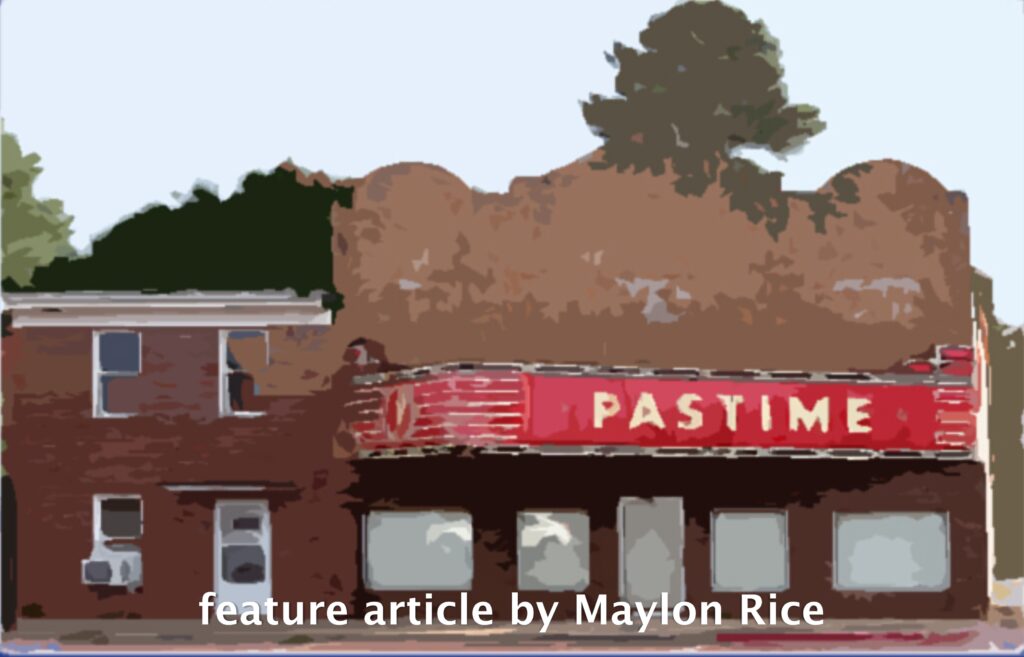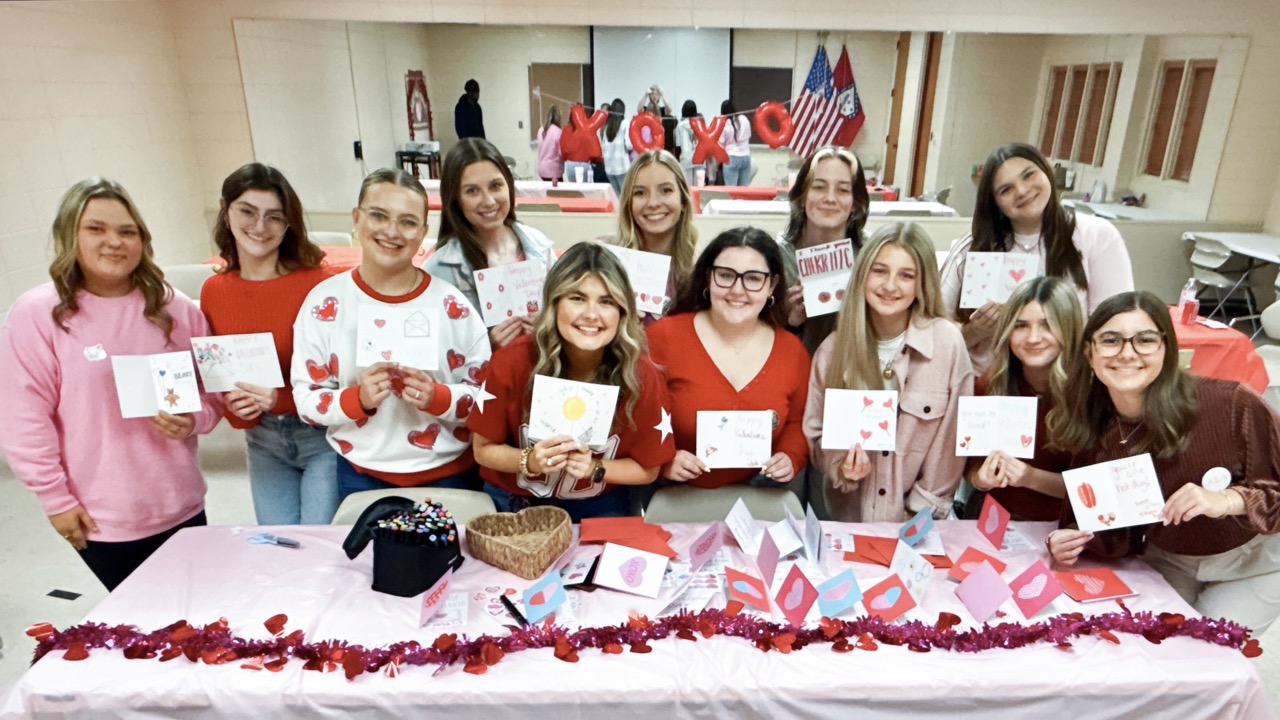As promised here is a more insightful look into the cast, their lines, actions and some hijinks of the Junior Play in the spring of 1972.
The Junior Play for the Class of 1973 was done in the Spring of 1972. Ms. Eloise McFarland, the sponsor for both the Pine Cone (yearbook) and newspaper (The Tall Timer Times) who also taught a journalism class, English and possibly a speech class or two in Warren High.

Saline River Chronicle Freelance Feature Contributor
She was the sponsor for both the Senior and Junior Class plays back then, but for the life of me I do not have a copy of the Senior Class play in 1971 or 1972.
We, the Class of 1973, as outlined here last week, had no Senior Play in the Spring of our senior year. I suspect it was of some political, social consequence, but have little or no facts at my fingertips proving so.
Enjoy these little sidelines from “Laughing Gas.â€
James Tate was the first person on the set for the opening scene, but he was wearing a mask, so his identity was hidden from the audience.

The next person on the stage was Chrystal Norton, portraying Miss Merlino, a 40-ish buxom Italian landlady. Her first lines were in short, jabbing Italian over phrases were:
“You wait-a one minroots – She’sa it! Justa theeng for you. Living-room, bedroom, bat’room – and akitchen.â€
In a conversation with Penny (played by June Ford), the landlady continues to extolled the virtues of his rundown apartment.
“The kit-chen, ‘ees good! You lika da spagehett? I maka spaghetti, some time. I show you. Plenty garlic, plenty garlic. Make it good!â€
Cathy Balentine, who plays the stodgy Aunt Amy Whitmire, the chaperone of the two Whitman sisters (June Ford as Penny and Jana Durmon, as Vivian) for the summer, displays her middle-aged spinster form.
“Is this Greenwich Village? (The NY City neighborhood Greenwich Village) The very idea trying to fool me. Making me rent an apartment in Greenwich Village. We’re getting out of here this minute,†said Cathy in a direct, authoritarian manner.
But they stay.
The play, which is a comedy, had the audience filled with polite laughter and applause during these verbal interchanges and back-and-forth routines of comedy lines.
One of the exchanges I remember best is Terri Lasiter, playing Flaiva Winterspere, the apartment’s next-door neighbor, reading some of her Bohemian style poetry.
Entering and dominating the scene, Flavia, intends to find Olga (Deborah Carter) the strong, yet comedic, Swedish maid.
“I see you are taking the apartment, we are to be neighbors,†Flavia said.
Asked if she is the lady who writes poems, Terri with a flourish of self-importance says:
“They are surreal-ythins, I call them, I deal with words as they surrealists deal with color. You do, know what surrealism is, of course?â€
Jana Durmon, playing Vivian, one of the Whitmire sisters, questions the poetess on her writings. “What are some of the things you have written, Miss Winterspeare?â€
“Immemorable, my dear innumerable, perhaps you’ve heard of my most famous – “Ecstasy and Onions? Or Moonlight over the Garbage Dump?â€
All the characters on stage shake their heads no.
“But of all of them, my favorite is “The Banana Was Pink.â€
June Ford says she’s never heard of that poem, so Terri Lasiter, or Flavia, reads the poem.
“The banana was pink in the moonlight
Was something I could not adore;
In the pants the ostrich kicked Hitler
Eternities lay on the floor.
Oh, my darling mud-turtle forever
And ever and ever and more –
The banana was pink and the moonlight
Was something I could not adore.â€
It took sometimes three or four attempts to get this done in rehearsal without the cast cracking up. It was a real hit for the audiences in the live performances.
One night in a rehearsal Charlie Morgan and I went goofing about in a scene where Charlie picked up my service revolver, a blank track and field starter’s pistol on loan from Coach Bobbie Hattibaugh.
Charlie fired off a shot (not found in the script) and Mrs. McFarland came unglued.
She virtually closed down practice and we were on the “bad†side of all the others at the rehearsal, as those rehearsals were rather fun to be a part of.
I do remember for the play, I had to visit with Chief Tommy Dunaway for a uniform. Somehow Sgt. Wilson Huitt, who was like assistant chief, had some old “skinny†uniforms with his sergeant’s chevrons on the sleeves, etc.

I got that uniform, a shirt, some trousers, both of which “swallowed†on stage. Dale Taylor came to the rescue, finding me an old pair of pants at Martin’s to wear but the shirt was so big, if I ran across the stage, it ballooned out into a near parachute style clothing.
I laugh even today at my best friend Sietze Rotton, who hated back then to wear ties and a sports coat – but his character Judge Haley was attired in white shirt, power tie, and suit of clothing, I think with a vest even.
Olga the maid, was at the time, my girlfriend, Deborah Carter. She practiced her lines over and over and knew practically everyone’s lines in the play. She had a thick accent as the Swedish maid and it was really thick.
The play was a success, we all had fun and in the style of other previous casts at WHC, we all took white and black shoe polish and wrote our names and the title of the play “Laughing Gas,†on the upper walls of the backstage. I looked many years later and it was still there.
But, sadly that old auditorium with the pressed-wood backed seats, is now gone.
And as a post-script, Stephanie Woodard, who played Kitty Doe, a chorus girl with golden locks, wore a wedding dress into the final scene, where she and I were married at the stroke of midnight.
When the Pine Cone yearbook came out that next year, our senior year, I was so honored and surprised that two “minor†role characters in the play were awarded Mrs. McFarland’s “Mask and Dagger†award – Deborah Cater and me.
I guess you could say, I’ve been a “ham†ever since.
What a Pastime memory – on stage in the Junior Play at Warren High School.






